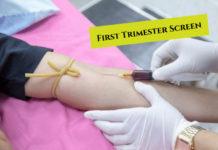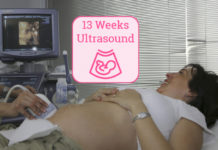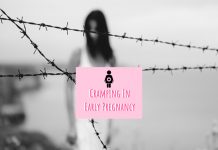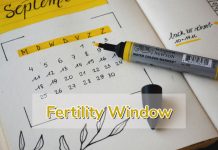Ovulation is the release of an egg from an ovary every month. Spotting a week after ovulation is too early to be a period and impossible to be ovulation spotting.
Bleeding after sex but before period does not always mean that you are pregnant. There are many underlying health causes for spotting one week after ovulation.
Mid-cycle cramping and spotting are one of the concomitant symptoms of pregnancy. Spotting week after ovulation is mostly considered as implantation bleeding. Implantation bleeding, unlike menses, is not heavy blood flow.
A woman is born with a fixed number of eggs at the time of birth. They undergo a division and arrest in that state until if fertilization occurs. Otherwise, most oocyte goes out of the body along with period.
Every month an ovary releases an oocyte for fertilization. The oocyte is viable for 24 hours and later on, failure comes out of the vagina as a period. When a woman conceives the oocyte fuses with a sperm and becomes an egg. Later the egg attaches to the uterus and gains nourishment from mother.
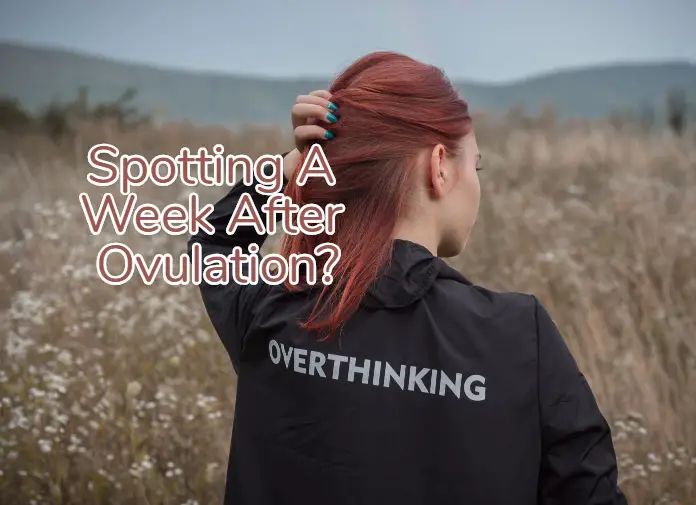
Spotting before ovulation
Spotting before ovulation or after it is a doubt we have all had. Similarly, most women don’t know that having sex before the day of ovulation has more chances of getting you pregnant than on ovulation.
This is because the sperms need to make it to the tubes crossing the harsh conditions of the vagina. Spotting before ovulation is not because of it.
Ovulation spotting occurs on the 14th day of the menstrual cycle. Bleeding before that cannot be because of ovulation. Ovulation is the release of the egg from the ovary every month.
After the Graffian follicle matures by deposition of granulosa cells the follicle ruptures. It releases a secondary oocyte. Commonly the reference for it is ovum. After fertilization, the secondary oocyte gets a dividing apparatus from the sperm. Then it becomes an egg or zygote.
Spotting before ovulation is not normal but may not be serious either.
The reasons for spotting before ovulation are:
1) Sexual intercourse
Deep penetrative sex can cause rubbing that leads to pre-ovulation bleeding. The vaginal wall becomes thin when the woman approaches menopause. This is the Perimenopause stage. During this time she can have spotting before ovulation because of rough coitus.
2) Hormonal imbalance
Hormonal imbalance can cause bleeding before ovulation. Breakout bleeding may also be a reason for this event. Hormone fluctuations happen throughout menstrual cycle. If there is abnormal rise or fall of Ovarian or sex hormones then bleeding can happen.
3) Birth control pills
Taking emergency contraceptive has a side effect of causing bleeding. Bleeding before ovulation may have no relation to ovulation except the reference of time. Infection or PCOS and other diseases can also cause bleeding.
Physiological bleeding after ovulation
Spotting a week after ovulation can’t be period. Ovulation occurs on the 14th day of the cycle. After this, the egg cyst releases progesterone hormone and maintains the uterine lining.
By the end of the luteal phase which lasts for about 12 days the lining gradually begins disintegrating. Spotting 2 weeks after ovulation is period or menses that every fertile woman goes through every month.
The PMS and menstrual cramps are extremely painful and cause suspension of daily activities.
Implantation cramps because of early pregnancy don’t cause so much pain. The spotting one week after ovulation is because of egg embedment.
Implantation bleeding is brown and scanty. Spotting week after ovulation because of implantation lasts for a day or two only.
The egg moves gradually into the upper layer of endometrial lining. As it sinks in it causes the capillaries to bleed and lead to implantation bleeding.
Physiological bleeding after ovulation is because of implantation if the woman is pregnant.
Concomitant symptoms
One can confirm that spotting a week after ovulation is because of implantation when she sees other symptoms.
Symptoms after implantation signs of pregnancy are concomitant. Spotting one week after ovulation is a sign that you need to take a pregnancy test.
After implantation, the egg forms a placenta from the egg membrane. This layer secretes hCG hormone that has a major role in pregnancy. This hormone doubles every 48-72 hours and controls the secretion of other hormones. It starts coming along with urine during pregnancy.
Pregnancy tests detect the presence of this hormone in urine. Spotting week after ovulation is a sign that you need to take a pregnancy test. Other early pregnancy symptoms like nasal congestion, bloating, cravings and aversions confirm that it was implantation spotting.
Spotting 2 weeks after ovulation
Spotting a week after ovulation can be because of an early period. Some women may have luteal phase defect and there lining will not form.
The regressed uterine lining will only cause spotting. Spotting 2 weeks after ovulation is the right time for onset of period. The menstrual cycle has/4 phases.
The ovulation phase is actually the shortest and is only for one day. After ovulation, the luteal phase or secretory phase maintains the lining of the uterus. Following this is the menstrual phase that is when you have 3-5 days long bleeding.
On the first day of the period, it is not like a filled balloon bursting. It takes time to start as a heavy flow. Spotting 2 weeks after ovulation is a sign that your menstrual phase started.
Infections can cause spotting one week after ovulation if you had unprotected sex with an unknown partner. Women who have very short menstrual cycles also have spotting week after ovulation.
The menstrual cycle must be of about 26-28 days. If a woman has a shorter menstrual cycle she may spot a week before period. Anemic women have less blood and can spot week after ovulation.
Spotting for a week after ovulation
Duration of spotting also counts as a measure of emergency for treatment. Spotting a week after ovulation is normal even if you are pregnant. It may be because of some hormonal imbalance.
Women who take continuous birth control can have random spotting. This is because their hormones fluctuate with the dose of birth control. If they forget a pill or overdose then spotting one week after ovulation may be because of it.
Spotting a week after ovulation can also be because of vaginal dryness. Bleeding after sex is because of insufficient lubrication.
Spotting continuing for a week is a sign of sexually transmitted disease. Most STDs cause bleeding and vaginal discharge.
The color of vaginal discharge is a sign of infection and thrush. Yeast infection or bacterial vaginosis cans cause spotting for a week after ovulation.
Other reasons may be because of douching or scented soaps. Hair removal creams or use of sharp razors can cause bleeding cuts. The color of spotting will be bright red in this case.
Other causes of vaginal bleeding a week after ovulation
Vaginal bleeding can be because of many reasons like IUD such as Mirena. They can irritate the lining of the uterus and cause spotting. Spotting a week after ovulation need not necessarily be with relation to it.
Some medications like antiepileptic drugs or entertainment drugs can cause spotting one week after ovulation. But this is not related to ovulation and instead is a hormonal disorder.
Thyroid dysfunction and obesity can cause breakout bleeding and random spotting throughout the month.
Spotting week after ovulation is a sign of pregnancy if you see other symptoms along. The other thing to remember is that the pregnancy test while implantation has a chance of giving a false negative pregnancy test.
The placenta takes about a week for reaching the hCG concentration of 25 mIU/mL. Pregnancy tests can detect this with 99% accuracy. Below this hCG level, the accuracy of pregnancy test is very low. You must wait for spotting 2 weeks after ovulation to confirm whether you are pregnant.
Sometime a mid-cycle bleeding might mimic implantation bleeding. Only after you miss your period then you reach the right time for taking a pregnancy test.




